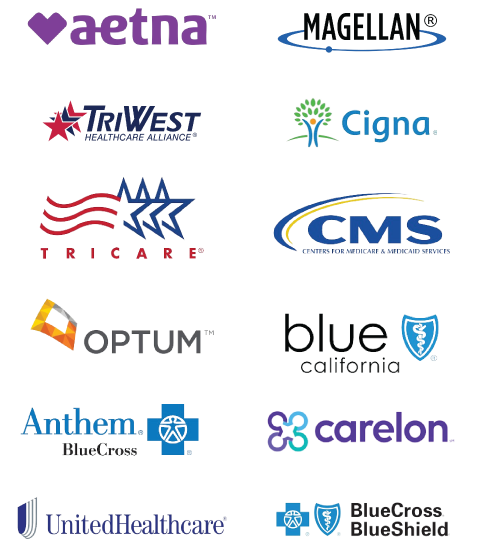Why Drug Rehab Matters
Drug rehabilitation is not just about detoxifying the body; it’s a process of restoring hope and rebuilding lives. The stakes are incredibly high, particularly in places like Orange County, California, where the battle against substance abuse is visibly pervasive. Choosing the right treatment center can transform a life, offering individuals new pathways that lead away from despair and towards recovery.
Enrolling in a reputable drug rehab program is essential for those seeking to escape the grip of addiction. A well-structured program not only helps to break the cycle of dependency but also provides tools and strategies to prevent relapse. For many, stepping into rehab is synonymous with reclaiming control over one’s life, making it a critical decision that can yield lifelong benefits.
Orange County as a Rehab Destination
Orange County, California, offers a unique and ideal setting for drug rehabilitation services. With its scenic coastlines and tranquil environment, it becomes an appealing destination for those seeking a break from the chaos of addiction. The natural beauty of the area contributes significantly to the healing process, providing a serene backdrop that encourages introspection and renewal.
Beyond its physical allure, Orange County is home to numerous high-quality rehabilitation centers. These facilities range widely in their offerings, from luxury accommodations to programs that emphasize holistic healing. This diversity ensures that individuals can find a program that aligns with their personal recovery goals and financial considerations, making it a flexible option for many.
Compassion Recovery Centers’ Approach
Compassion Recovery Centers stand out in the drug rehab landscape of Orange County, California, through their dedication to personalized care and evidence-based treatment. Focusing on both mental health and dual diagnosis treatment, they offer an integrated approach that addresses the complex needs of individuals struggling with addiction and co-occurring disorders.
What distinguishes Compassion Recovery Centers is their commitment to community support and individualized attention. They recognize that healing occurs best within a supportive network, combining therapeutic and group connections with tailored therapy sessions. The utilization of masters-level therapists and psychologists ensures that clients receive expert care in navigating their recovery journey.
Luxury housing options provided by Compassion Recovery Centers add an extra layer of comfort, creating a safe and sober environment essential for effective treatment. This attention to detail and client-centered ethos exemplifies their mission to transition individuals from hopelessness to a state full of hope and possibility.
Services Offered
Medication Management and Therapy
The comprehensive range of services at Compassion Recovery Centers includes medication management, ensuring that clients receive appropriate medical support for their mental health conditions. Alongside medication, therapy with skilled professionals helps to unravel the psychological aspects of addiction, equipping clients with coping mechanisms for future challenges.
Flexible-Term Programs
Recognizing the varied needs of their clients, Compassion Recovery Centers provide flexible-term programs that adjust to individual progress and circumstances. This adaptability allows for personalized recovery timelines, facilitating a smoother transition from intensive treatment to independent living.
Detoxification and Outpatient Services
For those in need of initial stabilization, detoxification services are available to safely manage withdrawal symptoms. Following detox, numerous pathways open up, including partial hospitalization, intensive outpatient care, outpatient programs, and a cutting-edge virtual IOP, suiting different stages of recovery.
Innovative Treatment Methods
At the forefront of treatment innovation, Compassion Recovery Centers utilize therapies that extend beyond traditional methods. Offering programs such as yoga therapy and EMDR, they integrate alternative therapies that promote holistic well-being, recognizing the vital connection between mind and body.
Holistic treatment options are designed to address the overall wellness of the individual, going beyond just abstinence-focused outcomes. Clients are encouraged to explore various therapy forms, fostering self-discovery and personal growth, providing them with a well-rounded toolkit to combat addiction and its roots.
Individual counseling sessions further enrich the treatment experience, offering personalized strategies to manage life stressors. These sessions serve as a safe space for clients to express their fears and triumphs, guided by compassionate professionals who foster resilience and empowerment.
Addressing Underlying Conditions
Understanding the intricate links between mental health disorders and addiction is paramount in the treatment philosophy of Compassion Recovery Centers. They emphasize identifying and addressing the underlying conditions that often fuel substance abuse, such as trauma and anxiety disorders.
This proactive approach seeks to empower clients, allowing them to take control over their recovery by recognizing personal triggers. By equipping individuals with the knowledge to manage these triggers, Compassion Recovery Centers aim to reduce the risk of relapse, ensuring long-term success in sobriety.
Inclusivity and Accessibility
Compassion Recovery Centers pride themselves on creating an inclusive environment that respects and welcomes all individuals, regardless of background or identity. Certified by the California Department of Health Care Services and Legit Script, they are trusted providers who offer LGBTQ-friendly services, ensuring a safe and nurturing atmosphere for every client.
Accessibility is another cornerstone of their mission. Being in-network with major insurance carriers, they alleviate financial burdens, making quality mental health and substance abuse treatment attainable for more people. This inclusivity reflects their foundational belief in recovery as a universal right, not a privilege.
Community Support
The role of community support in recovery cannot be overstated, and Compassion Recovery Centers harness this power to aid healing. Their therapeutic environments encourage meaningful group connections, helping clients develop a support system that extends beyond the confines of the treatment center.
Group therapy sessions facilitate shared learning and fostering of empathy among peers. Clients realize they are not alone in their struggles, which can be a profound motivator during challenging times. This communal resilience becomes a bedrock for sustaining recovery post-treatment.
Recovery Beyond Treatment
Compassion Recovery Centers believe that the journey to a fulfilling life extends beyond initial treatment. Their comprehensive aftercare plans ensure that clients remain supported as they navigate the complexities of life post-rehab. This ongoing support underscores their commitment to not just short-term recovery but a lifetime of health and well-being.
By maintaining contact with alumni and offering resources such as support groups and counseling, clients can continue to access the support they need as they return to their communities. They are encouraged to strive for personal growth and lead lives filled with gratitude and compassion, leveraging their experiences for a more profound sense of purpose.
How many days do you get in rehab?
The duration of a rehabilitation program can vary significantly based on the individual’s specific needs, the type of addiction, and the recommended treatment approach. Generally, rehab programs can last anywhere from 28 to 90 days, but some individuals may benefit from even longer stays. At Compassion Recovery Centers, we offer flexible-term programs to accommodate different recovery timelines. This flexibility ensures that each client receives personalized care tailored to their unique journey towards recovery. It’s important to remember that the length of stay in rehab is less about reaching a set number of days and more about achieving a solid foundation for lasting sobriety. Consider what duration might best meet your personal recovery goals, and consult with professionals to determine the most suitable plan for you.
Can you pay to go to rehab?
Yes, you can pay to go to a drug rehab Orange County California, and there are several options available to cover the costs. Many facilities, including Compassion Recovery Centers, accept health insurance plans, which can significantly reduce out-of-pocket expenses. Additionally, some centers offer financing options or sliding scale fees based on income. It’s worth speaking with the admissions team at the rehab center you’re considering to explore different payment strategies that align with your financial situation. Remember, investing in your health and recovery is a step towards a healthier, more fulfilling life.
How to get money for rehab?
Securing the necessary funds for rehab can be a challenge, but there are multiple avenues you can explore. Start by checking if your insurance plan covers substance abuse treatment. If it does, this could significantly alleviate the financial burden. Additionally, some treatment centers offer payment plans or sliding scale fees based on financial need. Crowdfunding is another option, where you can seek support from friends and family through platforms like GoFundMe. Moreover, state-funded programs and non-profit organizations may offer grants or scholarships for those who qualify. It’s crucial to have an open dialogue with treatment centers to explore all possible financial assistance options.
What drug do they give you in rehab?
The medications used in rehab are tailored to each individual, depending on the type of addiction and any co-occurring mental health conditions. Commonly, medications are used to manage withdrawal symptoms, prevent relapse, or treat co-occurring disorders. For example, methadone, buprenorphine, or naltrexone may be used for opioid addiction, while disulfiram or acamprosate might be prescribed for alcohol dependency. At Compassion Recovery Centers, medication management is a key component of our integrated approach, ensuring clients receive the most appropriate medical support alongside therapy. Always consult with a medical professional to understand the best options for your specific circumstances.
Why is Orange County a good destination for drug rehab?
Orange County, California, is considered an excellent destination for drug rehab for several reasons. The natural beauty of the region, with its stunning coastlines and tranquil settings, creates a serene environment conducive to healing and reflection. This peaceful backdrop allows individuals to step away from the stressors of daily life and focus on their recovery journey. Moreover, Orange County is home to a wide range of high-quality rehab facilities, offering diverse treatment options from luxury settings to holistic approaches. At Compassion Recovery Centers, our location in Laguna Hills provides a perfect blend of comfort and accessibility, making it an ideal environment for individuals seeking a fresh start.
What support is available after treatment at Compassion Recovery Centers?
At Compassion Recovery Centers, we understand that recovery is a lifelong journey, which is why we prioritize support beyond the initial treatment phase. Our comprehensive aftercare plans are designed to help clients maintain their sobriety and continue personal growth. This support includes regular follow-up sessions, access to support groups, and counseling services tailored to the individual’s ongoing needs. We also encourage clients to stay connected with our alumni community, providing a network of peers who understand the challenges and triumphs of maintaining sobriety. By staying engaged with these resources, clients can continue to build a fulfilling, resilient life beyond their time in treatment.





